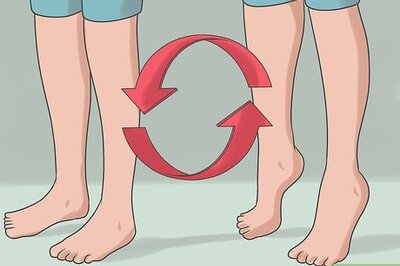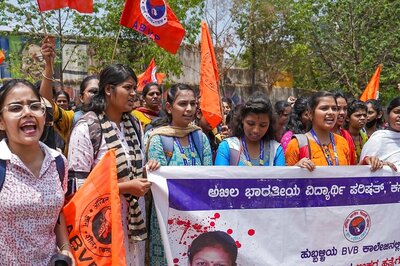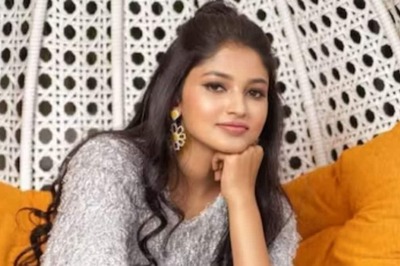
views
New Delhi: A recent report has revealed that women comprise less than 28 percent of lower court judges.
The report by Delhi-based think tank Vidhi Centre for Legal Policy comes just days after the Central government has sent back a collegium recommendation on elevating Senior Advocate Indu Malhotra as a Supreme Court judge.
Titled "Tilting the Scale: Gender Imbalance in the Lower Judiciary", it said, "Women comprise less than 28% of lower court judges. Only in three of the smallest states—Goa, Meghalaya, and Sikkim, with a collective total of a mere 103 judges—does the percentage of women judges cross 60%.”
“Barring Telangana and Puducherry, the percentage of women judges remains below 40 percent for all other states. Bihar (11.52 percent), Jharkhand (13.98 percent), Gujarat (15.11 percent), Jammu & Kashmir (18.62 percent), and Uttar Pradesh (21.4 percent) have the lowest representation of women in the lower judiciary," states the report.
The report has also noted that two Union territories, Andaman & Nicobar Islands and Daman & Diu have no women judges, making it the lowest in the country.
Lower courts in India consist of three tiers: District Judges, Civil Judges (Senior Division) and Civil Judges (Junior Division) in descending order. The report has analysed data for only 10 states, where a trend has been observed where by a near-uniform trend of the percentage of women judges decreasing as one moves up these tiers.
The report has also mooted for the viability for reservation of women for appointment in the lower judiciary drawing a parallel with the increase in number of women holding positions in the Panchayats after amendments introduced as 243D in the Indian Constitution.
"Policies providing reservation for women have been implemented in several contexts in the past. For example, the 73rd Amendment to the Constitution, which inserted Article 243D, provided for one-third of seats in Panchayats at all levels to be reserved for women. The number of elected women representatives has increased dramatically since 1993. Alongside demands for reservation for women in relation to political representation, discourse around the need for representation of women in the judiciary has also grown in the last decade," the report noted.
While there is currently no reservation for women in the higher judiciary, a number of states have provided quotas for women in the lower judiciary. States like Andhra Pradesh, Assam, Bihar, Chhattisgarh, Jharkhand, Karnataka, Odisha, Rajasthan, Tamil Nadu, Telangana and Uttarakhand provide for reservation which ranges between 30%-35% of the total seats for which recruitment is done through direct appointment.
The only state which has outperformed in having women judges is Meghalaya where there are 31 women judges compared to 11 male judges, making it a 73% of women judges in the state's lower judiciary.




















Comments
0 comment